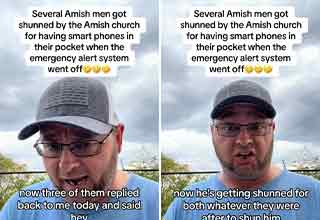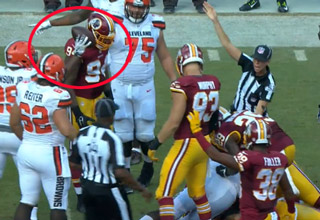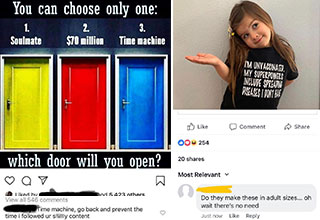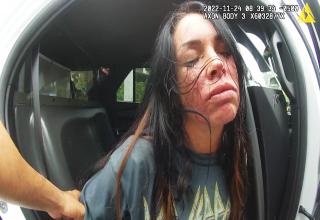
Earlier this week, news broke that former Abercrombie & Fitch CEO Mike Jeffries was being investigated for sexual misconduct. A BBC investigation found that Jeffries, who served as CEO of the brand from 1992 to 2014, relied on an organized network to recruit young men to attend sex events he hosted, with some of the men alleging that they were abused.
Abercrombie & Fitch has since told the BBC that it has engaged an “outside law firm to conduct an independent investigation" and that it was “appalled and disgusted” by the alleged behavior.
The former CEO of Abercrombie & Fitch is accused of exploiting men, according to a BBC investigation pic.twitter.com/U8C011ubXI
— Brut America (@brutamerica) October 4, 2023
Previously hailed as the brand’s savior after he transformed it into a mall staple, Jeffries left the company in 2014 citing dwindling sales. The BBC investigation found that prior to his departure, a pension fund invested in Abercrombie brought forward legal proceedings in which it claimed the company had paid out settlements after allegations of “misconduct” by Jeffries. An anonymous source told the BBC that he had “seen internal documents describing payoffs for staff and agency workers who had complained about Mr Jeffries’ behavior.”
The news has confirmed for many what has been an open secret for some time. On a five-year-old post on the r/BotchedSurgeries subreddit, one user, who claimed to be a former retail employee, commented, “I’ve met the dude SEVERAL times. He’s a total weirdo — as are nearly all of the employees at their corporate offices. They follow the guy around during a store walk-through like he’s a Roman emperor. We, at the store, thought they were all complete tools. I used to hide in a clothes rack when he arrived to see how long I could stay there without being caught.”
Jeffries’ legacy at Abercrombie & Fitch was previously scrutinized in a documentary released on Netflix last year, White Hot: The Rise & Fall of Abercrombie & Fitch. The documentary focused on the image Jeffries cultivated during his time as CEO of (white) all-American youth and beauty; Jeffries famously said in a 2006 interview, “We go after the cool kids. We go after the attractive all-American kid with a great attitude and a lot of friends. A lot of people don’t belong [in our clothes], and they can’t belong. Are we exclusionary? Absolutely.”
The documentary examined the racism baked into this all-American branding, which culminated in a class-action racial discrimination lawsuit and a case brought before the Supreme Court in which the company unsuccessfully argued that it was legal to deny employment to a woman wearing a headscarf because it violated the brand’s “look policy.”






1 Comments